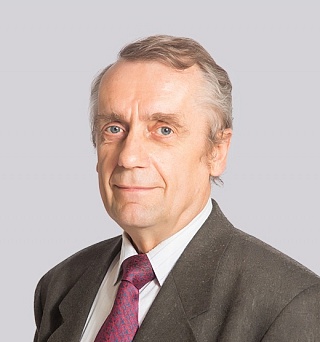Genericness banned in Russia
17 August 2022The story started back in 2019. At that time, SUGEN, INC. and PHARMACIA & UPJOHN COMPANY Pharmacia Upjohn sued Nativa, a Russian company, The Ministry of Health of the Russian Federation and Oleg Mikhaylov, the third person closely associated with Nativa against infringement of their patent No 005996 for Pyrrole substituted 2-indolinone protein kinase inhibitors (case No А40-166505/17-15-1481).
Earlier, Nativa had sought a license from the plaintiffs but was refused and sued them claiming a compulsory non-exclusive license in court. Nativa also asked the court to recognize its patent No 567535 dependent upon plaintiffs’ patent No 005996.
The plaintiffs argued that the respondent produced a generic named Sunitinib-nativ and sold it infringing their patent. However, the court opined that the plaintiffs had no base to make their claims and, on the contrary, the respondent had the right for a compulsory license because his drug was based on his own (dependent) patent. The owner of the dependent patent may claim a compulsory license if his invention is 1) an important technical achievement and has 2) substantial economic advantages over the original patent.
The court ordered expert examination which produced contradictory conclusions. The court nevertheless ruled that the compulsory license should be granted because it satisfied the above (1,2) conditions.
The plaintiffs appealed the judgment. They argued that the use of the patent owned by the respondent does not relieve him from liability for infringement of their patent. The respondent did not prove that his invention is an important technical achievement nor does it have substantial economic advantages. The court of appeal confirmed however the judgment of the 1st instance court.
The plaintiffs again appealed the judgment with a cassation complaint. This time at the IP court. They repeated the earlier arguments and argued that the respondent’s invention had no advantages in comparison with the original patent. They also pointed out inconsistencies in the experts’ reports. The reports do not contain convincing information about the importance of the technical achievement, nor do they demonstrate any economic advantages.
Notwithstanding, IP court upheld the previous judgments. This ended the series of hearings in 2019.
Further, the plaintiffs appealed the judgment at the Supreme court in February 2020. The judge of the Supreme court examined the case and found that the case had no grounds for being eligible for consideration by the judicial collegium for economic disputes of the Supreme court.
The plaintiffs went back to the Moscow commercial court and initiated a case on the basis of newly discovered evidence which is allowed by the procedural rules. The case was initiated in early 2022 and the judgment was handed down on March 10, 2022. The court meticulously listed the arguments put forth by both parties during the previous hearings. The new evidence put forward by the plaintiffs indicated that the respondent’s patent No 2567535 had been invalidated by the patent office on June 25, 2021 because it did not meet criteria of patentability.
The court relied on the Decree of the Supreme Court No 17 of 2021 and the provisions of the Procedural Code that provides that, when a case is re-examined because of newly discovered evidence, there should be important circumstances which could not be known to the plaintiffs, and if they had known those circumstances that could have led to a different judgment.
As a result, the court came to the conclusion that its earlier judgment of 2019 should be cancelled and the case should be examined again from the beginning.
The new hearing was scheduled for May 18, 2022. The judgment was announced on June 17, 2022. The court examined all evidence and concluded that original claims could be satisfied and Nativa’s counterclaims should be dismissed.
The court found that Rospatent had invalidated patent No 2567535 on June 25, 2021 because it did not satisfy criteria of patentability. The plaintiffs used that fact as a newly discovered circumstance and asked the court to reconsider the case. Nativa appealed the decision of the patent office at the IP court, so examination in court was suspended pending decision of the IP court. The IP court dismissed Nativa’s appeal.
This allowed the Moscow commercial court to continue examination of the case and it satisfied the claims of the plaintiffs, i.e. it forbade production, offer for sale, sale, other ways of marketing and storage for those purposes of the drug Sunitinib-nativ until expiration of the term of the Eurasian patent No 005996.










